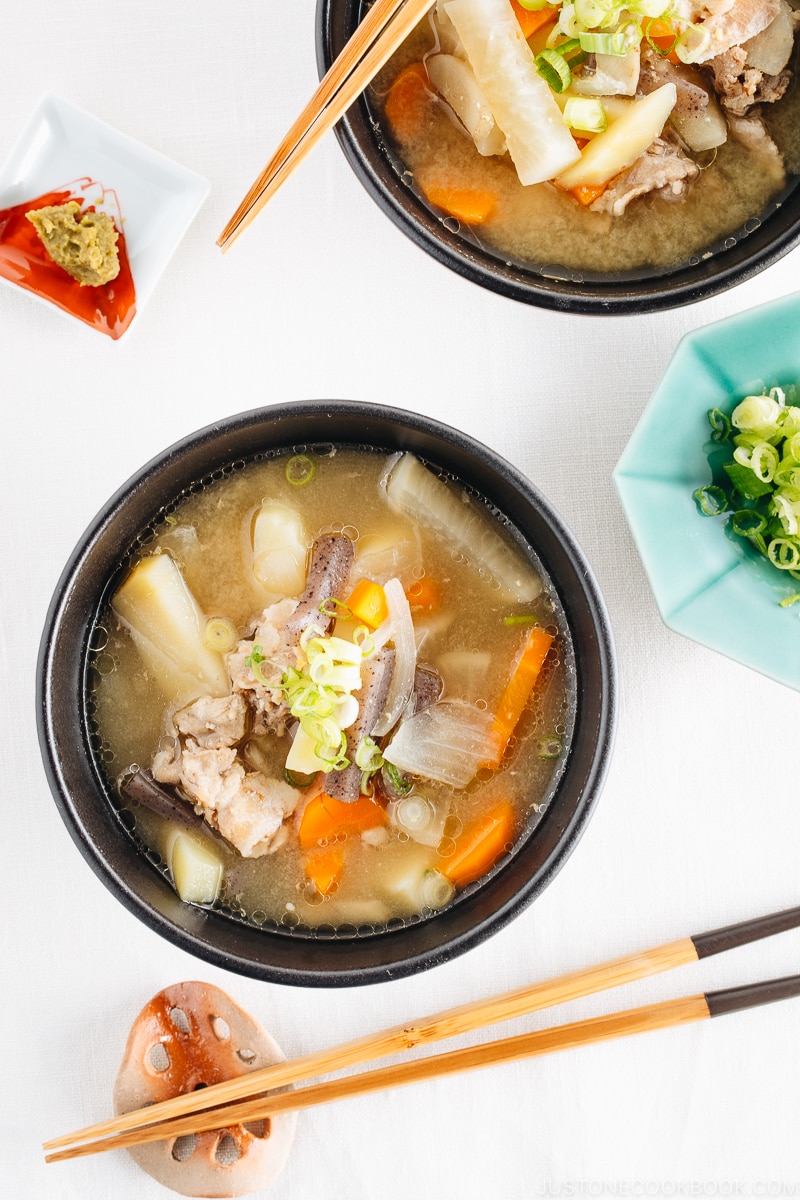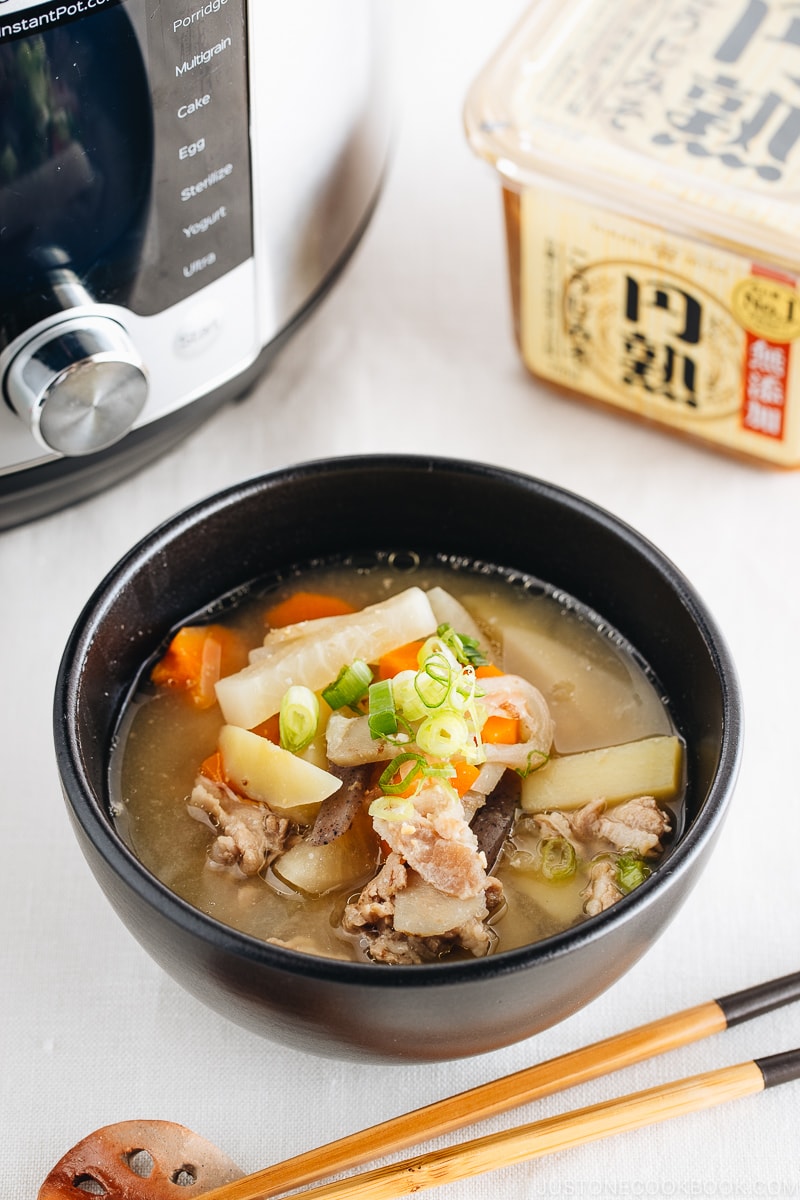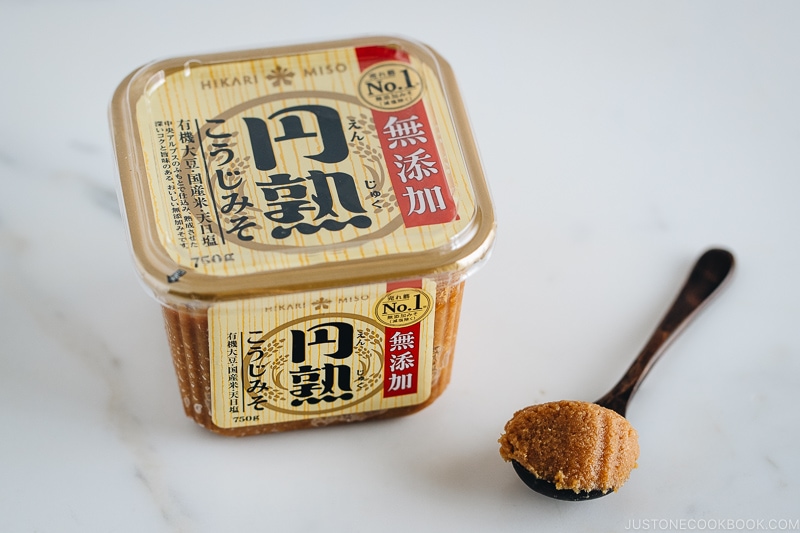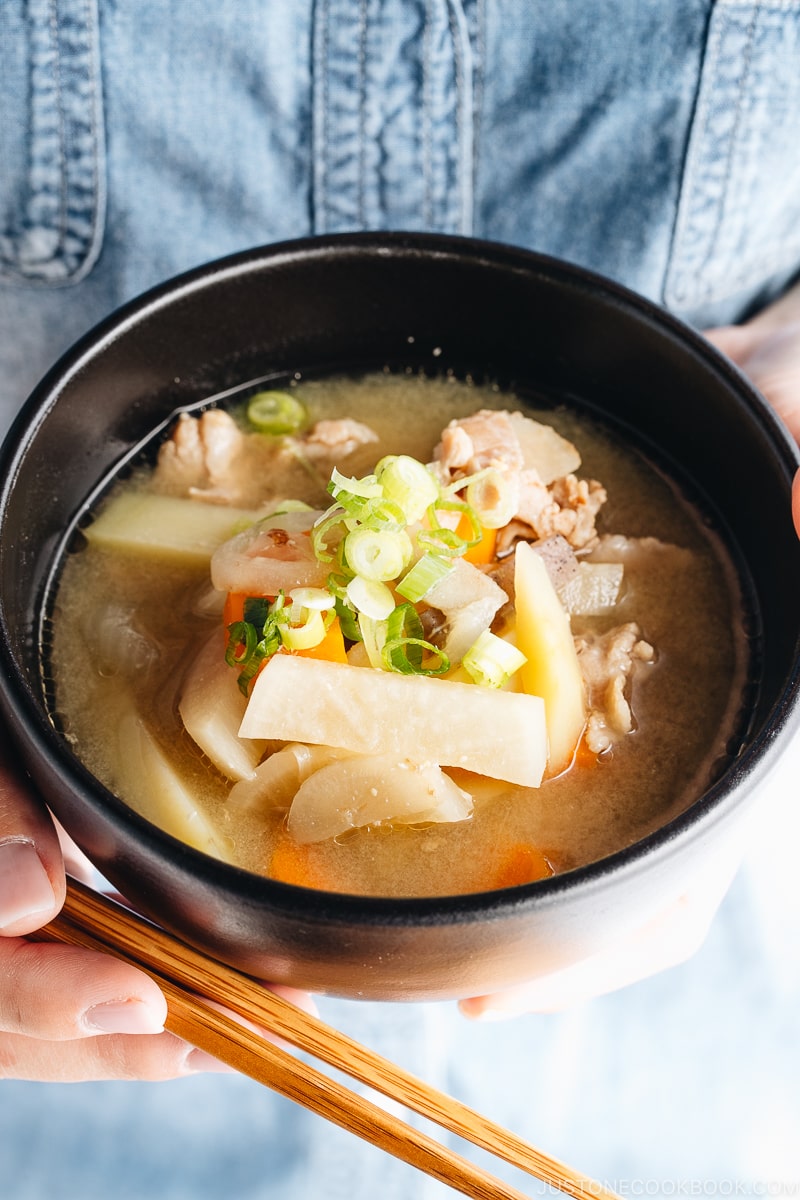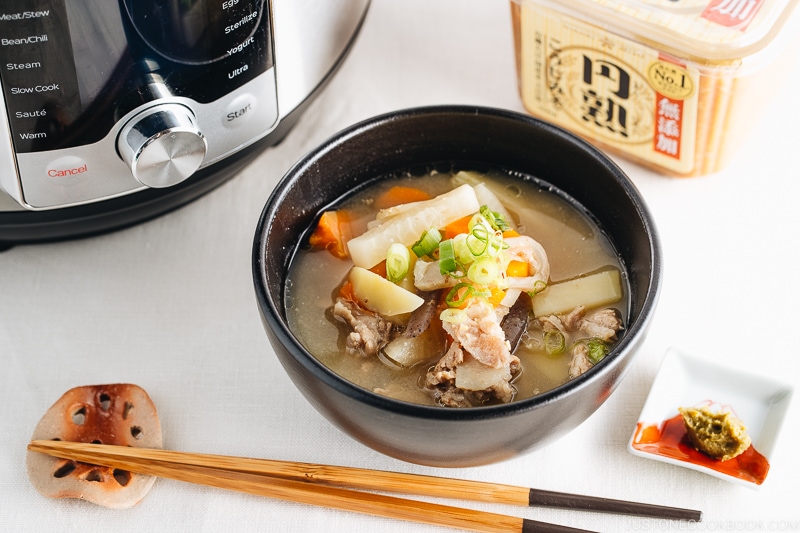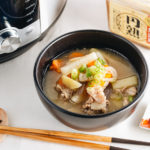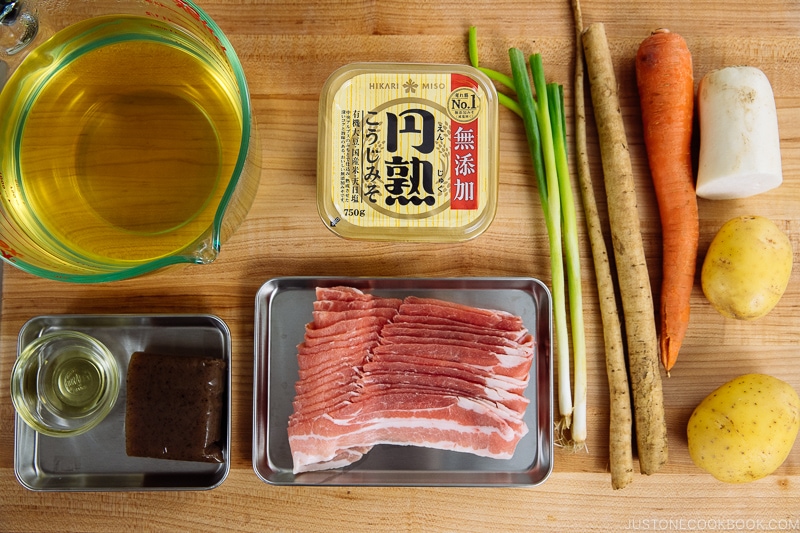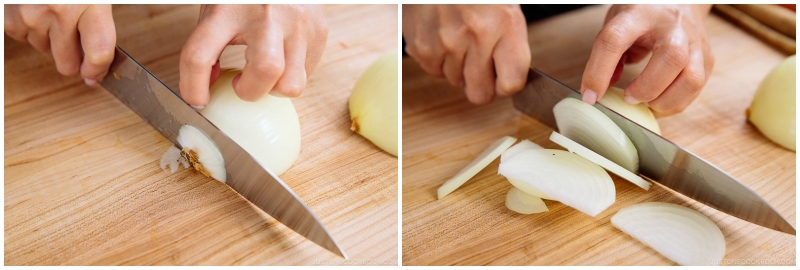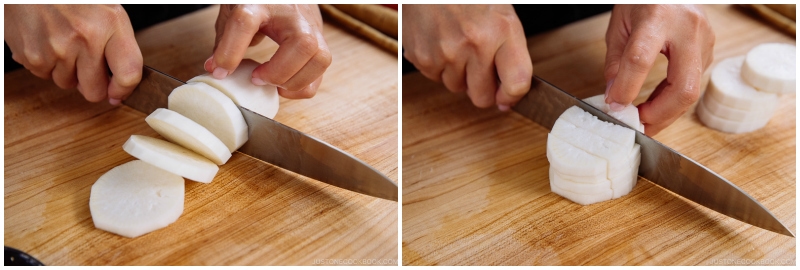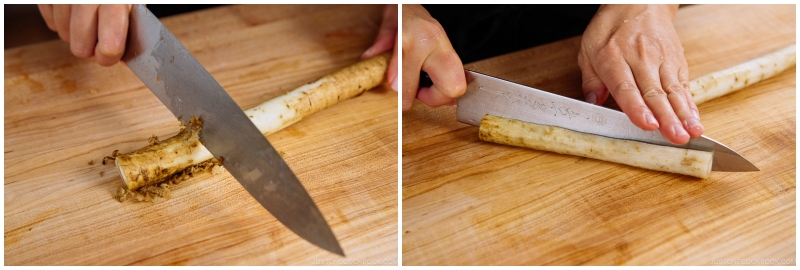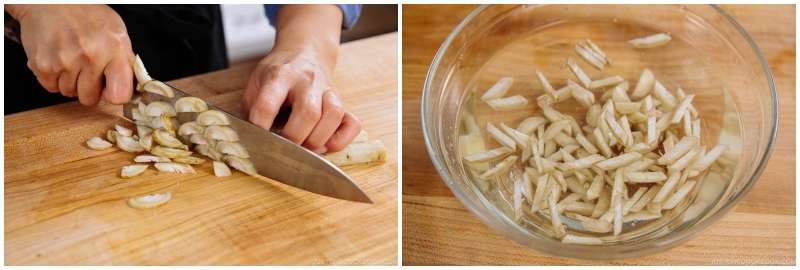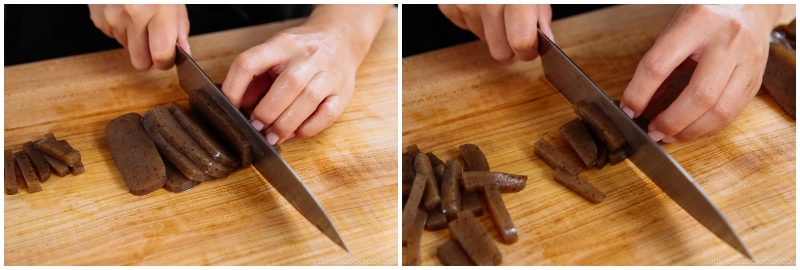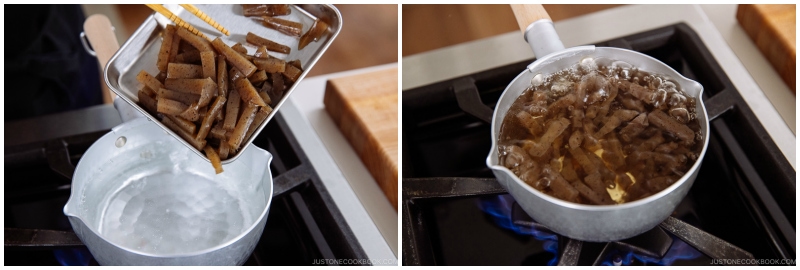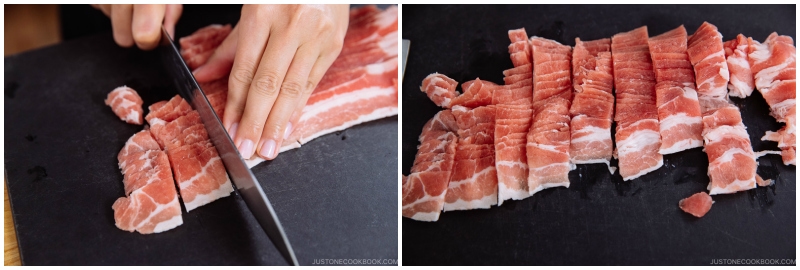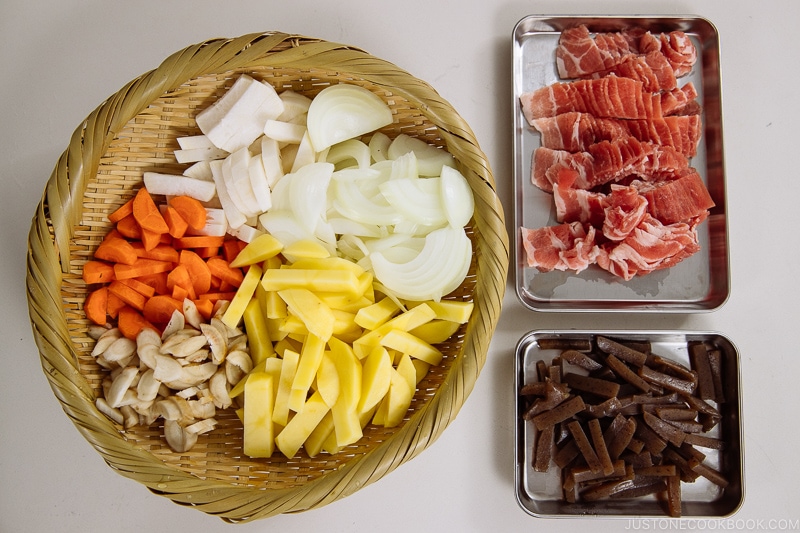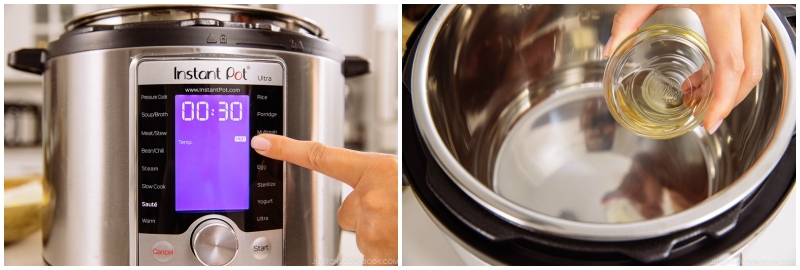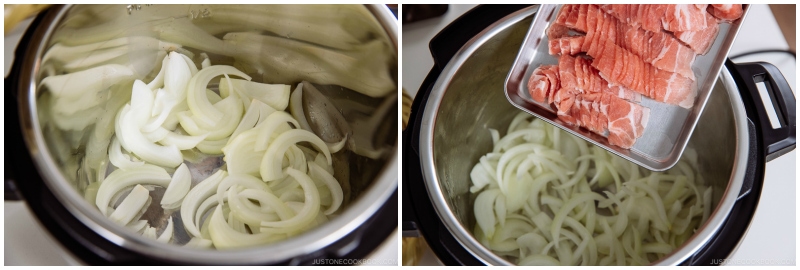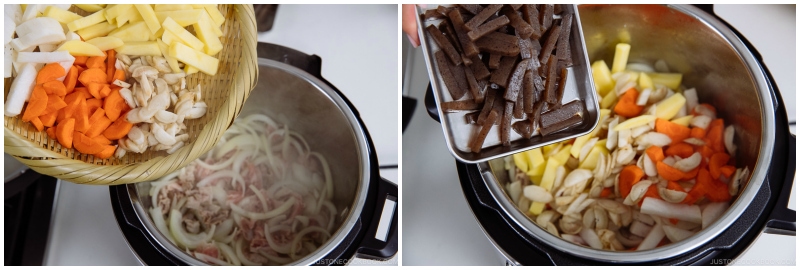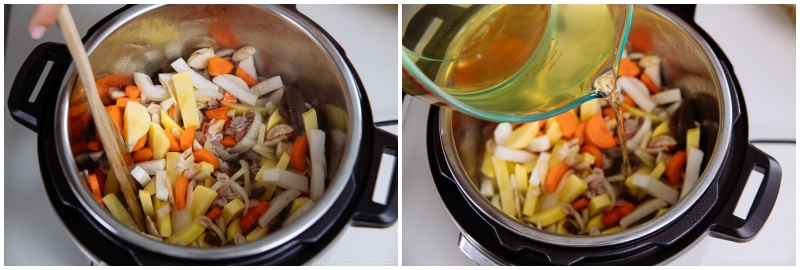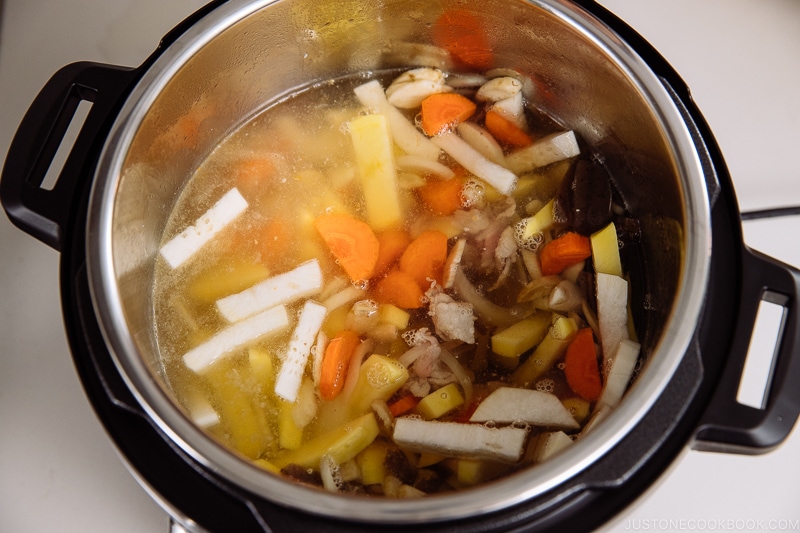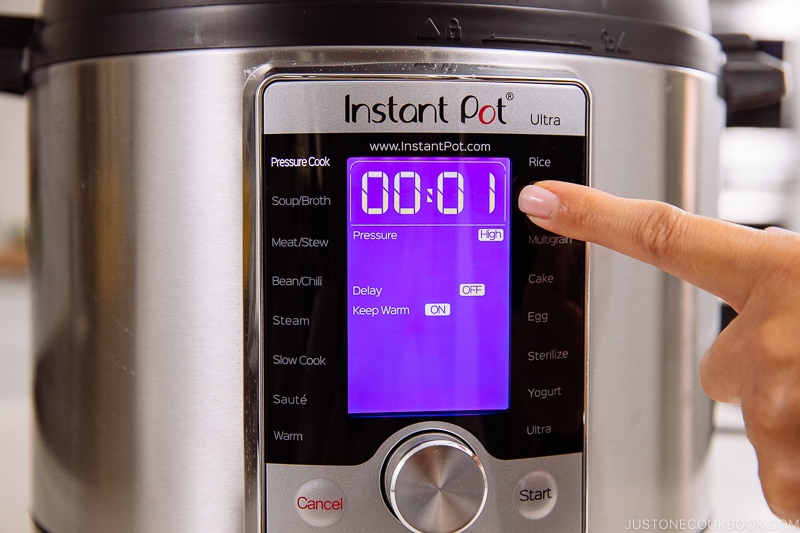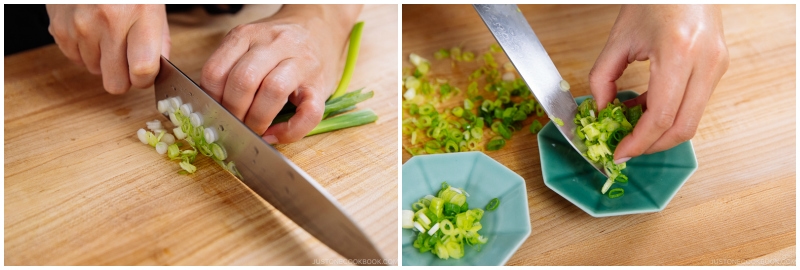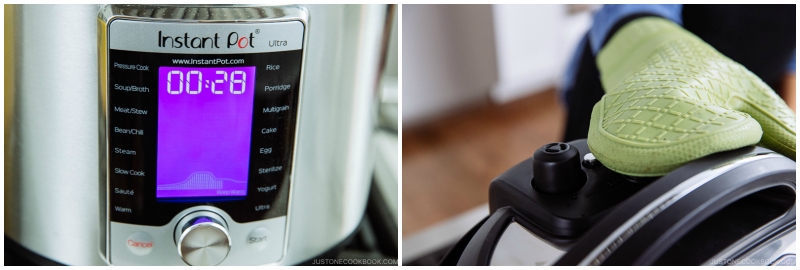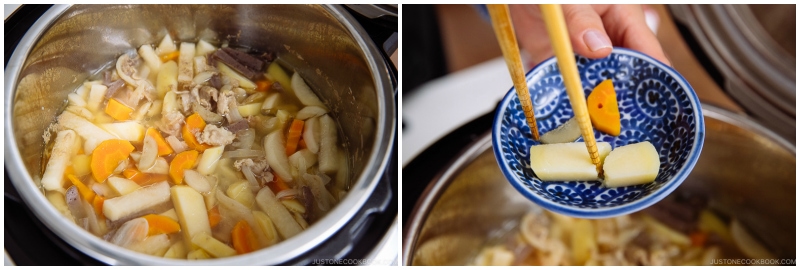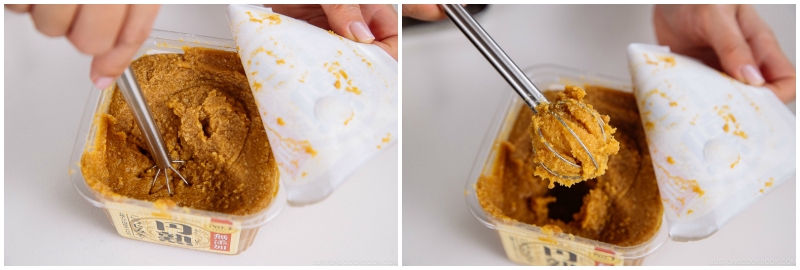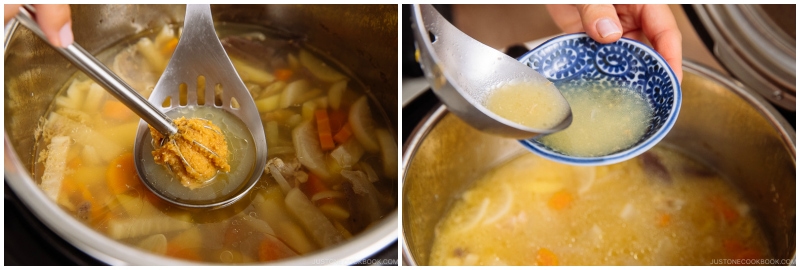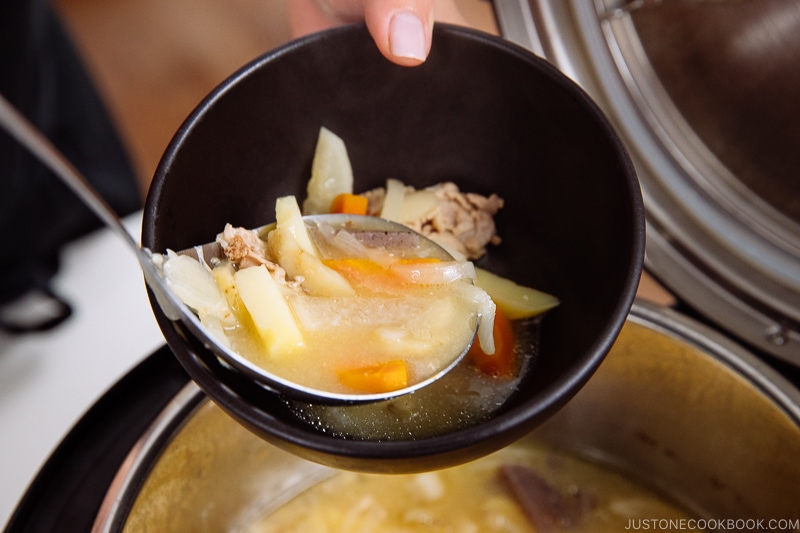When I was in college, I used to make a big pot of this pork and vegetable miso soup and ate it throughout the week. Not only was it a hearty miso soup for the mind and soul, it also gave me good nutrients from the meat and vegetables. This all-mighty soup is called tonjiru (豚汁) or sometimes butajiru. I’ve already shared a regular Tonjiru recipe that requires cooking on the stovetop, but today I’ll share the Instant Pot Tonjiru recipe. Although the actual cooking time is roughly the same as the stovetop method, the benefit of cooking tonjiru in the electric pressure cooker is you can walk out of the kitchen once you press the Start button and go back to study, work, or spend the time with your family.
What is Tonjiru?
Tonjiru (豚汁) literally means pork (ton) + soup (jiru). It’s basically miso soup featuring pork and root vegetables. Some people call it butajiru (豚汁) too, with buta as just another way to read the same kanji character. It’s a very popular comfort food in Japanese home cooking. Tonjiru is easy to make, especially if you already know how to make miso soup. For tonjiru, you’ll prepare dashi—Japanese soup stock—ahead of time and then stir-fry the pork and vegetables first before adding dashi.
Ingredients You’ll Need for Tonjiru
1. Pork
This miso soup wouldn’t be called tonjiru or butajiru without pork (ton or buta) in it. The cut of pork is your choice, but in Japan, pork belly slices are the popular cut for this dish as it is more flavorful. The next choice is pork loin slices. If you cannot get ready-sliced pork belly or pork loin at local Japanese/Asian grocery stores, you can thinly slice meat yourself at home into thin slices or strips.
2. Vegetables
The flavor essence of the soup comes from pork, but it actually features more vegetables. Common vegetables used in tonjiru are root vegetables such as:
carrots Yukon gold potatoes or satoimo (Japanese taro) daikon (Japanese radish) gobo (burdock root)
Besides the root vegetables, there are other ingredients you can add.
konnyaku (kanjac) tofu or aburaage (deep-fried tofu pouch) shiitake mushrooms or shimeji mushrooms bean sprouts (my mom always includes them) green onions/spring onions
We usually do not add leafy vegetables like spinach. If you’d like to add them, I recommend blanching them separately and adding directly to the soup bowl. This way, you can retain the bright green color and won’t overcook the leafy veggies.
3. Dashi (Japanese soup stock)
Because tonjiru has a lot of ingredients that contribute to a tasty broth, you can get away with using water instead of dashi. However, my choice is always dashi because it gives more depth and umami that pork and vegetables don’t have. You can taste the difference right away. I use the combination of kombu and katsuobushi for dashi (called Awase Dashi) in the majority of my cooking, and this recipe is no exception. I highly recommend making homemade dashi, but if you’re in hurry, a dashi packet from Kayanoya makes nice quick dashi in no time.
4. Miso (Japanese fermented soybean paste)
There is no specific type of miso that you must use for tonjiru. If you like a certain type of miso (such as white miso, awase miso, or red miso), you can use it. If you are new to miso, read my miso pantry post to get familiar with it. For my tonjiru recipe, I used Enjuku Koji Miso from Hikari Miso®. I love the hint of sweetness that koji miso gives. The more koji in the miso, the sweeter it tastes.
How to Make Tonjiru
What Dishes to Serve with Tonjiru
My mom always served tonjiru in a donburi bowl as it was the main dish, and accompanied the soup with a grilled fish dish. Because tonjiru has meat in it, she usually avoids meat as a main dish. I do the same and usually serve a simple grilled fish such as Grilled Pacific Saury (Sanma), Grilled Mackerel (Saba Shioyaki), or Salted Salmon (Shiojake). Tonjiru already has tons of root vegetables, so you can skip side dishes that contain similar ingredients. Instead, serve sides like:
Tamagoyaki (Japanese rolled omelette) Simmered Koyadofu Instant Pot Kuromame Pickled Tomato Hijiki Seaweed Salad
Or if you’re really busy, just prepare a grilled fish and steamed rice, and that will still be an amazing nutritious meal!
Looking for Similar Comforting and Hearty Soups?
Kenchinjiru (Vgetable Soup) {vegan} Sanpeijiru (Salmon Miso Soup) Miso Soup with Yuzu Kosho
Wish to learn more about Japanese cooking? Sign up for our free newsletter to receive cooking tips & recipe updates! And stay in touch with me on Facebook, Pinterest, YouTube, and Instagram.
